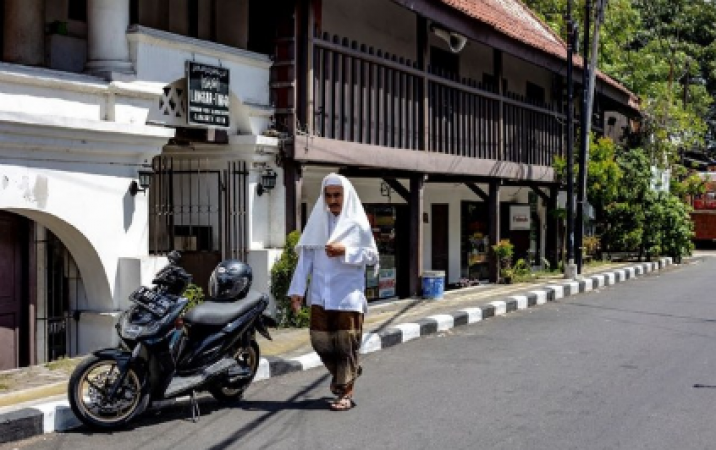
Jakarta: Most of the merchants from the Arabian Peninsula who settled in Batavia in the late 18th century did so in Pekojan, which some locals still regard as the neighborhood's heart.
The capital city of the Dutch East Indies at the time was Batavia, which is equivalent to Jakarta today. Different ethnic groups were also required to reside in particular areas, and Dutch colonial rulers were very particular about implementing racial division.
One of these places was Pekojan, which was a witness to both segregation and the character of the Arab community, which was able to overcome it and embrace the diverse cultural influences of its new home. The landmark structure in the Arab neighbourhood and one of Jakarta's oldest mosques, Langgar Tinggi, is a living example of this with its eclectic design.
Also Read: Islamic scholar's defence requests his release from the Swiss rape trial
The mosque, which was built nearly 200 years ago, has kept its original shape, unlike the majority of Jakarta's historic buildings.
"Look at this building; it was constructed in 1828, and it is still standing today. Since it was built, this mosque has remained unchanged and original. Caretaker of Langgar Tinggi Achmad Alwi Assegaf told Arab News, "We don't want it changed.
On land donated by a prominent South Arabian merchant family, Abubakar Shihab, a Muslim trader from Yemen, constructed the two-story mosque.
During that time, a large number of prosperous Arab traders from Southeast Asia supported mosques and other places of worship for Muslims in nations that non-Muslim European powers had colonised.
"These were the gifts from earlier generations... According to Assegaf, whose own family emigrated to Batavia from Yemen seven generations ago, they constructed mosques, prayer rooms, and funded the commemoration of Islamic holidays so that people in Pekojan observed them as they were done in Yemen.
Also Read: Xi promises to forge closer ties with Kazakhstan
The old neighbourhood had also adapted to the various lifestyles of its nearby Chinese, European, and indigenous populations.
The mosque's wooden components, red roofing tiles, and white walls defy the stereotype of what a mosque looks like. A closer inspection reveals a fusion of architectural traditions that helped shape it.
According to Assegaf, Portuguese architecture, which was popular at the time, served as the inspiration for its pillars. While the style of the building's base was typical throughout Java, it incorporates Chinese building tradition in its doors, windows, and support beams.
"Fusion occurred. According to Assegaf, Langgar Tinggi exhibits architecture from all the people we had traded and coexisted with, not just that of the Arabs.
Pekojan has lost many of its original residents over the years. Wealthier individuals have relocated to other areas of Jakarta, and numerous original structures in the neighbourhood have fallen into disrepair.
Since his family has been residing in Pekojan since 1910, livestock trader Abu Sulthan has remained there. However, he had been noticing how the neighborhood's distinctiveness was gradually vanishing.
"There used to be many Arabs in this area. There were many traders back then," he said. Although many have already left, it is still referred to as an Arab neighbourhood.
The Langgar Tinggi caretaker, who insists that Pekojan still serves as a benchmark for Arab culture, is the one who, despite all odds, maintains optimism that the lost glory will one day be restored.
Also Read: After a plane crash, four kids were discovered alive in the Amazon
According to Assegaf, "the culture of Yemen has always been upheld in Pekojan," citing the area's culinary heritage and demonstrating some of the genuine Arab dishes that are served at nearby restaurants.
"Hotel chefs also learn (to cook) here," he claimed. "The individual identity still exists."